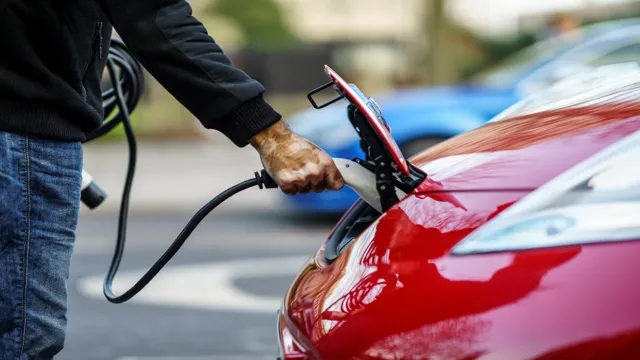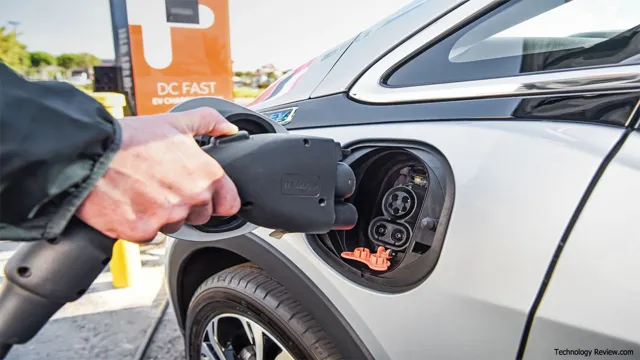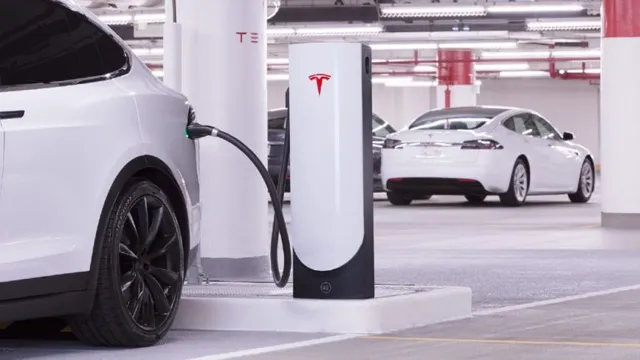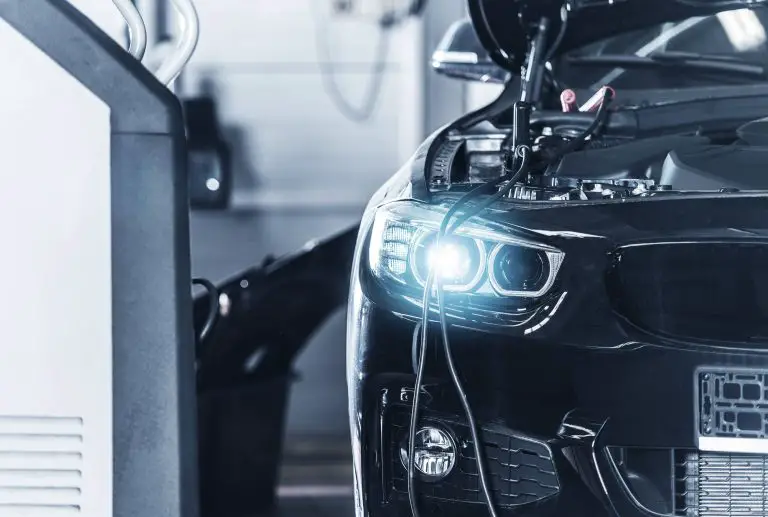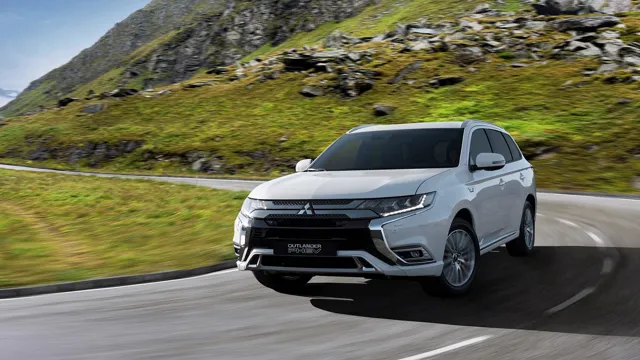The Shocking Truth: Exploring the Drawbacks of Owning an Electric Car
Electric cars have become increasingly popular in recent years due to their environmental and economic benefits. But like any technology, they also have their drawbacks that deserve consideration. In this blog, we will explore some of the downsides of driving electric cars.
From limited range to high upfront costs, we’ll take a critical look at these vehicles and help you make an informed decision on whether an electric car is the right choice for you. So buckle up and let’s hit the road to explore the potential pitfalls of electric cars.
Limited Range
One of the biggest drawbacks of driving an electric car is the limited range. Even though the range is increasing with new technology, it’s still not comparable to traditional gas-powered cars. This can be especially stressful for those who commute long distances or enjoy taking road trips.
It can be frustrating to have to constantly plan your route around available charging stations and have to wait to charge up while on the road. Additionally, the cold winter months can decrease the range even further, making it difficult to rely on an electric car in certain climates. However, advancements in technology are continuing to improve the range and efficiency of electric cars, giving hope for a future with even more sustainable transportation options.
Electric cars have a shorter range than traditional cars.
Electric cars have a shorter range compared to traditional cars, but this limitation is slowly being addressed by the latest advancements in battery technology. The limited range of electric cars is primarily due to the capacity of the battery. As of now, electric vehicle batteries can store only a limited amount of energy, which allows them to travel only a few hundred miles on a single charge.
However, with the ongoing research on battery technology, it is expected that electric vehicle batteries will be more efficient and energy-dense in the future. The advancement in battery technology will undoubtedly increase the range of electric cars, making them more feasible and desirable. Additionally, the present limited range of electric cars is expected to improve as charging infrastructure continues to expand, making it easier for people to charge their vehicles on the go.
The limited range of electric cars may be comparable to the early models of mobile phones, which had limited battery life, but with advancements in battery technology, modern smartphones can last for days. Electric cars are the future, and the range limitation will soon be a thing of the past.
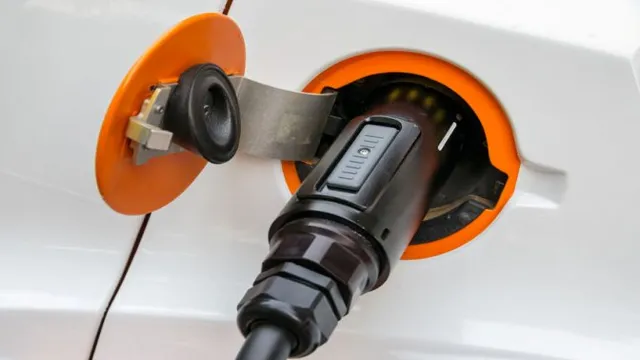
Charging Time
Charging time is a primary concern for electric vehicles, especially when it comes to limited range. It’s common to feel apprehensive about long road trips when you’re worried that you won’t be able to find a charging station or that the battery will take too long to recharge. However, with advancements in battery technology, charging time has become less of an issue for many electric vehicle owners.
Rapid charging stations can recharge your battery in under an hour, so you can get back on the road in no time. In fact, some electric vehicles can add over 100 miles of range in just 20 minutes of charging. Plus, with the availability of charging stations continuing to increase, you can confidently plan long-distance trips knowing that you’ll be able to keep your EV fully charged along the way.
It can take several hours to fully charge an electric car.
Electric car technology has advanced significantly in recent years, but one significant limitation that has yet to be fully addressed is the limited range of these vehicles. While some models can travel more than 200 miles on a single charge, many are restricted to around 100 miles or less. This can be frustrating for drivers who need to travel longer distances and must either stop frequently to recharge or plan their trips around charging stations.
Furthermore, it is important to note that it can take several hours to fully charge an electric car, which is considerably longer than the time it takes to fill up a traditional gas-powered vehicle. However, with more charging stations being built and electric car technology continuing to evolve, it is likely that these limitations will be addressed in the near future. In the meantime, electric car owners should take care to plan their trips strategically and be prepared for longer charging times.
Cost
While driving an electric car has many advantages, such as reducing carbon emissions and saving money on fuel costs, there are some potential drawbacks to consider. One of the most significant drawbacks is the upfront cost of purchasing an electric car. While the long-term savings on fuel costs and maintenance can make up for this, the initial investment can be a barrier for some people.
Additionally, depending on where you live, access to charging stations may be limited, meaning you may need to plan your trips carefully to ensure you have enough power to get where you need to go. Finally, while electric cars are becoming more common, they are still less convenient to own in terms of the availability of mechanics and technicians who can service and repair them. Despite these drawbacks, many people find that the benefits of driving an electric car more than make up for any potential challenges.
Electric cars can be more expensive than their gasoline counterparts.
Electric cars can be more expensive than their gasoline counterparts, but it’s important to consider the long-term cost savings. While upfront costs may be higher when purchasing an electric vehicle, the cost of operating and maintaining one is significantly lower compared to a gas-powered car. Electric cars have fewer moving parts, which means less need for maintenance and repairs.
Additionally, electric cars typically have lower fuel and energy costs. In the long run, owning an electric car can actually save you money. It’s important to do your research, calculate the cost savings, and see if an electric car is the right choice for you.
Limited Model Options
If you’re in the market for a new car, you may find that some manufacturers offer limited model options. This can make it difficult to find the right car for your needs, especially if you have specific requirements. But why do some car companies offer fewer options than others? One big factor is cost.
Developing and producing new models is expensive, so some manufacturers choose to focus their resources on a smaller number of models in order to keep costs under control. This can be frustrating for consumers, but it can also lead to higher quality vehicles as manufacturers are able to invest more in the development and production of each model. So while limited model options may be inconvenient, they can also be a sign that a manufacturer is focused on quality over quantity.
The selection of electric cars is still limited compared to traditional cars.
When it comes to the cost of electric cars, it’s not uncommon for them to be priced higher than traditional gasoline-powered vehicles. Although they may save you money in the long run on fuel costs, the initial investment can be a deterrent for some potential buyers. However, it’s important to consider the long-term benefits, such as the ability to charge your vehicle at home and potentially receive tax incentives.
While the selection of electric cars may still be limited compared to traditional cars, the market is growing and more affordable options are becoming available. In fact, some manufacturers are even pushing to make electric cars more accessible to the average consumer with new models and varying price points. It may take some time for the industry to fully transition to electric vehicles, but the benefits of cleaner air and reduced dependence on fossil fuels make it a worthwhile investment for both individuals and the planet as a whole.
Battery Life
While electric cars are the future of eco-friendly transportation, there are a few drawbacks that drivers should be aware of before jumping in. One of the most significant issues is battery life. Unlike conventional cars that can be refueled in a matter of minutes, electric cars need to be charged for several hours before regaining their full battery power.
This can be especially problematic when you’re on a long road trip and you need to make frequent stops to recharge your battery. Additionally, the battery life of electric cars can be affected by extreme weather conditions, such as extreme heat or cold. In cold temperatures, the battery’s power output may be reduced, which can cause the car to operate at a slower pace or even stall.
Similarly, in extreme heat, the battery may overheat, causing significant damage to its components. While the technology used to produce electric cars is continually evolving, battery life is still an issue that automakers need to address.
The lifespan of an electric car’s battery is limited and replacements can be costly.
The lifespan of an electric car’s battery is an important factor to consider when buying an electric vehicle. Although electric cars have come a long way in the past several years, battery technology has not yet advanced to the point where batteries can last as long as traditional car engines. Typically, the lifespan of an electric car battery is around 8-10 years, or approximately 100,000 miles.
After that point, the battery’s performance will slowly degrade, resulting in decreased range and charging capacity. Replacement batteries can be costly, often costing several thousand dollars. However, some manufacturers offer warranty or replacement programs to alleviate the cost burden on consumers.
One way to extend the life of an electric car’s battery is to avoid frequently charging it to 100% or discharging it to 0%, as this can put extra strain on the battery and reduce its overall lifespan. Additionally, keeping the battery cool and avoiding operating the car in extreme temperatures can help extend its life. Overall, while the limited lifespan of an electric car’s battery may be a consideration for some buyers, the benefits of driving an electric vehicle in terms of environmental impact and energy efficiency may outweigh this potential drawback.
Performance Concerns
When it comes to smartphones, battery life is a common issue that many users face. With smartphones being used for various tasks and apps running in the background, it can be challenging to preserve battery life throughout the day. However, there are several ways to improve the battery life of your smartphone.
One simple way is to reduce the brightness of your screen, as a bright screen drains the battery quickly. Additionally, closing apps that you aren’t using can also help preserve the battery life. Another option is to enable power-saving mode on your phone, which restricts background activity and reduces the performance of your phone to conserve battery life.
By taking these simple steps, you can improve your smartphone’s battery life and ensure that you have enough charge throughout the day. So, whether you’re traveling, working or using your phone for entertainment, you can rest easy knowing that your phone won’t die on you.
Some electric cars may have issues with acceleration, handling, and braking compared to traditional cars.
When it comes to electric cars, one issue that can crop up is battery life. While traditional cars can go hundreds of miles on a single tank of gas, electric cars rely on their batteries to get them where they need to go. This can present a challenge for drivers who need to travel long distances or who don’t have access to charging stations on a regular basis.
While some electric cars boast impressive ranges, others may struggle to make it even a hundred miles before needing to be charged up again. This can be a major inconvenience for drivers, and it highlights one of the key areas where electric cars still have room for improvement. As technology continues to advance, however, we can expect to see electric cars with longer-lasting and more reliable batteries, making them a more viable option for drivers who want to go green without sacrificing performance or convenience.
Conclusion
While electric cars may certainly offer a range of benefits, including reduced emissions and lower fuel costs, there are certainly some drawbacks to consider. For one, the range of most electric vehicles is still relatively limited, meaning that drivers may need to carefully plan their routes to avoid running out of power. Additionally, charging times can vary depending on the specific model, making it difficult to quickly refuel on the go.
And while electric cars are generally more environmentally friendly, the manufacturing process often relies on the use of rare earth metals and other materials with significant environmental impact. In short, electric cars are a great option for those who prioritize sustainability and don’t mind a bit of extra planning, but they may not be ideal for drivers who need flexibility and convenience in their vehicles.”
FAQs
Are the batteries in electric cars expensive to replace?
Yes, batteries for electric cars can be expensive to replace.
How far can an electric car travel on a single charge?
Electric cars vary in range, but most can travel between 100-300 miles on a single charge.
Do electric cars take longer to charge than traditional cars take to fill up with gasoline?
Yes, electric cars typically take longer to charge than filling up a traditional car with gasoline. However, there are fast charging options available that can reduce charging time.
Can electric cars handle extreme temperatures?
Electric cars can struggle in extreme temperatures, especially in very cold weather where the battery may lose range faster. However, some newer models have heating and cooling systems specifically designed to address this issue.


